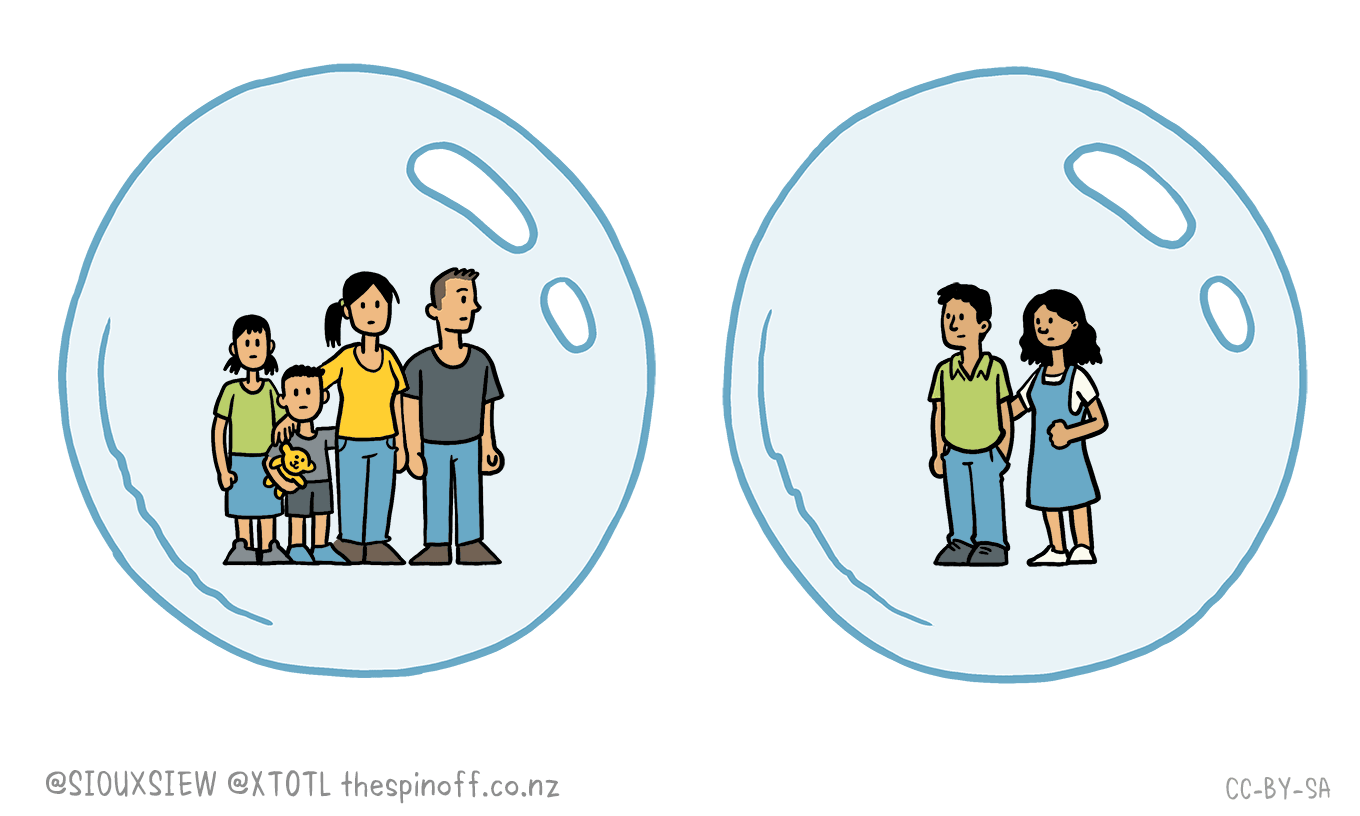The Commission for the Human Future (@HumanFutureAU) recently held a groundbreaking webinar on Catastrophic Risk and the Public Good: Toward our Human Future. Hosted by Dr Arnagretta Hunter (@cbr_heartdoc) - a cardiologist and the Human Futures Fellow in the College of Health and Medicine at ANU and chair of the Commission - and featuring Dr Luke Kemp, an expert in catastrophic risk now based at Cambridge, and Dr Millie Rooney from Australia reMADE, the discussion addressed two big themes: threats to humanity and what matters for people in their lives. The conclusions were that community is central to our human future, and that catastrophic risks like climate change, nuclear war and artificial intelligence can be reduced through better democratic representation, through better economics and through a deliberate acknowledgement of the value of caring and importance of community. In today’s post, Dr Hunter explores key lessons from the webinar and explains why the best hope for a better human future lies in concerted effort.
Read MoreToday’s post from Janet Hunt questions the extension of the Cashless Debit Card to more people receiving income support in Australia in light of its problematic evaluation. Associate Professor Hunt is a former president of ANTaR, a member of ANTaR ACT, and researcher at the Centre for Aboriginal Economic Policy Research. Her research has focussed on Indigenous governance, government engagement with Aboriginal and Torres Strait Islander communities, and community development over many years. This post was originally published on the ANTaR website.
Read MoreQualitative longitudinal research can make a distinctive contribution to social policy discussions and to the assessment of outcomes. In today’s post, Jane Millar, Professor of Social Policy at the University of Bath, draws on longitudinal research with lone-parent families to illustrate how change and continuity can look different over shorter and longer time periods, and to explore some of the challenges of engaging in policy debates with qualitative data. The post was originally published on The Social Policy Blog, the companion blog to the Journal of Social Policy, Social Policy and Society and the Journal of International and Comparative Social Policy.
Read MorePRIMARY CARE NETWORKS (PCNs) were introduced across England in July 2019, bringing together groups of general practices, along with community providers, to develop new services for patients. These networks respond to a need for better integration of health and social care services and issues of sustainability in primary care.
Read MoreThere is increasing cross-sectoral unease about the mental health impact of COVID-19 and the lockdown put in place to combat it. A recent commentary in the Lancet suggested that “suicide is likely to become a more pressing concern as the pandemic spreads and has longer-term effects on the general population, the economy, and vulnerable groups” (Gunnell et al. 2020). While a relationship between COVID and suicide is not clearly established, Dr Anna Lavis argues that the key to forging understandings of their potentially complex connections is an attention to the many suicide-related discussions currently happening on social media.
Read MoreThe Productivity Commission’s 2018 report on the community sector reported that productivity failings within the sector were failing people experiencing hardship. In today’s post, David Tennant of Family Care suggests that this conclusion should be revisited in light of the policy changes instituted in response to COVID-19.
Read MoreSince lockdown measures were introduced on 23rd March 2020 in the UK, while a minority of vulnerable children attend school, and school staff have worked hard to stay connected, social workers and family support workers have been some of the few safeguarding professionals visiting families in their homes and often the only ones to do so regularly. I this blog post, Professor Harry Ferguson asks - How, then, are social workers and families managing the risks from COVID-19 that home visits carry?
Read MoreIf you have ever needed money in a hurry it may have been tempting to apply for a small loan to tide you over until your next pay packet. During Covid-19 and with increasing financial precarity, ‘payday’ loans may be how people resource short-term solutions as many people look online for financial help. Research from Dr Vivien Chen at Monash Business School’s Department of Business Law and Taxation shows the rise of digital platforms has significantly increased consumer access to payday loans. The financial risk posed by Covid-19 presents a key opportunity for governments to develop policy and mechanisms to protect people in financial distress. This article originally appeared in Monash Impact.
Read MoreMarketing managers and academics have been studying how families plan ahead and make decisions about family care and family consumption for a long time. But what happens when planning ahead is not possible? A new study says that when consumers can’t plan ahead...they dance.
Read MoreExisting previous research indicates that sleep is a key factor associated with developmental psychopathologic symptoms. However, the nature of this association is still unclear. For example, we still do not know whether sleep problems may precede the development of certain mental health problems, or whether they merely co-occur together. In this blog post, Dr Isabel Morales-Muñoz talks about her latest research into sleep and it’s power.
Read MoreIn today’s post, Dr Andrew Joyce, Dr Perri Campbell, and Aurora Elmes from the Centre for Social Impact Swinburne argue that a social enterprise focused Job Guarantee could be an important part of a suite of policies to address imbalance in the labour market in the wake of COVID-19.
Read MoreHuman psychology plays a key role in how we respond to pandemics.
Victoria University of Wellington’s Dougal Sutherland unpacks the factors that determine our behaviour during lockdown.
Read MoreAs Covid-19 case numbers have been rising quickly in Australia Government responses and recommedations to the public have also been fast moving. In an age where trust in our political institutions is at an all time low Professor John Shine from the Australian Academy of Science argues that in such a fast moving environment transparency must be at the core of Government responses. The Academy has thus called on the Government to make all the data and science underpinning their Covid-19 decisions be made public.
Read MoreThe accelerating pace of urbanisation globally has generated new anxieties about our relationship with and experience of cities. In this piece Jessica Pykett discusses how to start designing policy strategies for urban wellbeing.
Urban challenges such as traffic, air pollution, noise, stress, overcrowding, socio-economic inequalities, food insecurity, excessive waste, ill-health, exclusion, conflict, privatisation of space and impacts of extreme weather, biodiversity loss and the climate crisis are some of the many concerns which urban policy makers are asked to address. In 2018 at a summit of the World Health Organization’s European Healthy Cities Network in Copenhagen, Denmark, hundreds of Mayors committed to taking action on health, wellbeing and happiness in cities.
Read MoreSuicide is a major challenge for public health. Approximately 800,000 people die by suicide every year worldwide; that is one every 40 seconds. The impact on those left behind is profound and long-lasting. It is estimated that for every death by suicide approximately 135 people are affected. In this post, Dr Maria Michail reflects on the importance of understanding the complexity of suicide and suicidal behaviour.
Read MoreIn this original post, Jack Noone ((@DrJackNoone), Gemma Carey (@GemCarey) both of the Centre for Social Impact, UNSW (@SWIsocialimpact) and Tinh Doan from The Australian National University) (@scienceANU) discuss the need for a national strategy to guide how employment participation is enhanced for older workers. Researchers, governments, social enterprises, community groups, employers, advocacy organisations and other stakeholder groups are all working to remove the barriers to employment. However, without a national strategy to guide these activities, there is a risk of duplication and inefficiency. A national strategy, in contrast, would allow stakeholder to connect, coordinate, collaborate and use resources wisely.
Read MoreIntimate Partner Homicide (IPH) is a serious social and criminal justice issue and statistics suggest the problem is increasing. This puts serious pressure on those who respond to domestic abuse, coercive control, and intimate partner stalking, to be able to confidently assess the risk, or spot risk escalation. In this blog Dr Jane Monckton Smith discusses her research tracking intimate partner homicide risk escalation.
Read MoreGeneral practice in the United Kingdom has long had an international reputation as a positive exemplar of primary care. Free at the point of access, funded on basis of population and needs (i.e. not a fee for service), and led by clinicians, our model is seen to have a better chance than most of providing the support that is preventative, coordinated, and with continuity of care. In this post, Professor Robin Miller considers how over recent years, it has become apparent that our traditional model will struggle with expected demographic changes such as an ageing population, the rise of obesity, and increasing people living with multiple long-term conditions. These combined pressures are indeed leading to frustration for patients in relation to accessing appointments, and considerable stress for general practice.
Read MoreMany people have childhood memories of being pushed around and being punched by other pupils when we felt you couldn’t retaliate. They may also remember being the topic of nasty rumours or being excluded by others. Unfortunately, being bullied is not an unusual experience, even today. Similar to maltreatment, bullying involves abusive behaviours where it is more difficult for the victims to defend themselves. But in contrast to maltreatment, these abusive behaviours are perpetrated by others of the same age. In this blog post, Professor Louise Arseneault discusses research that she has been conducting for the past 15 years – alongside great collaborators – and emphasises the importance of moving away from the common perception that bullying is just an unavoidable part of growing up.
Read More




















